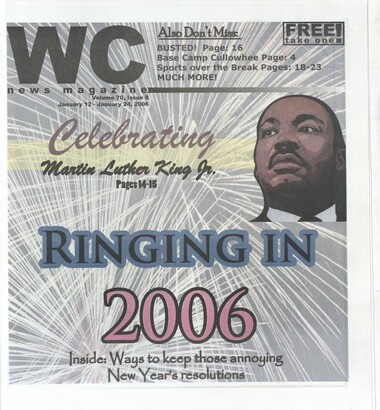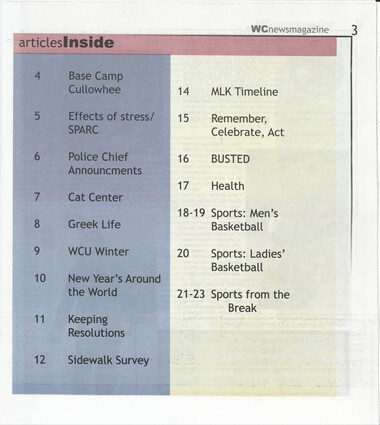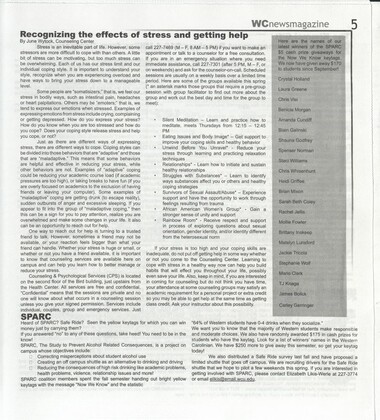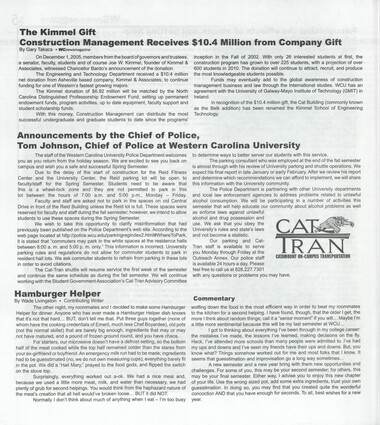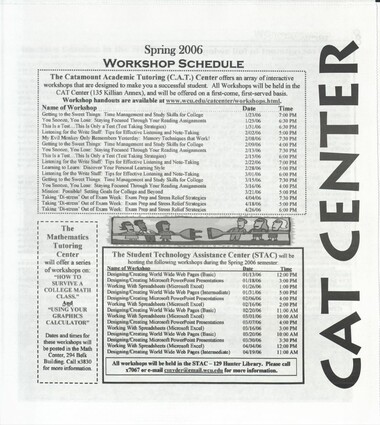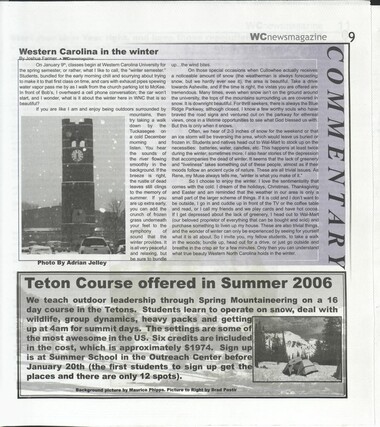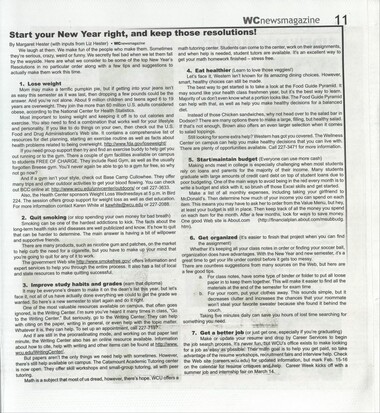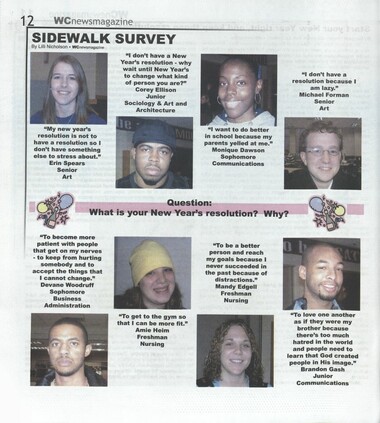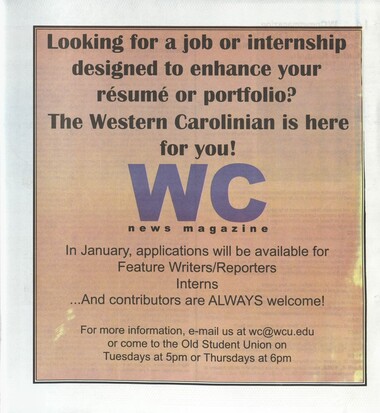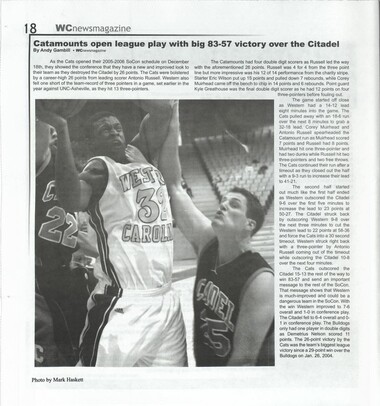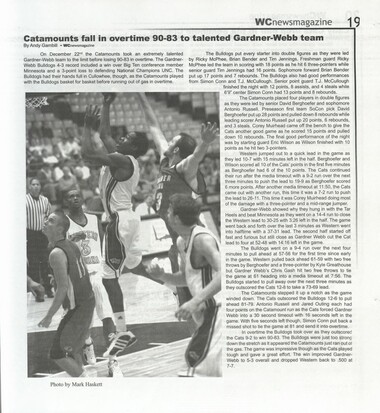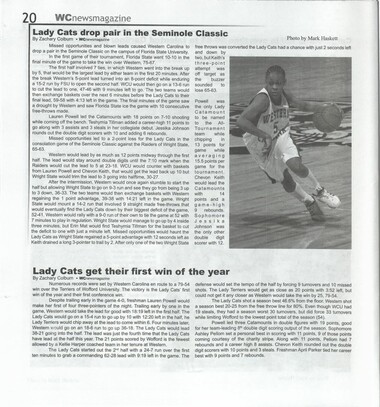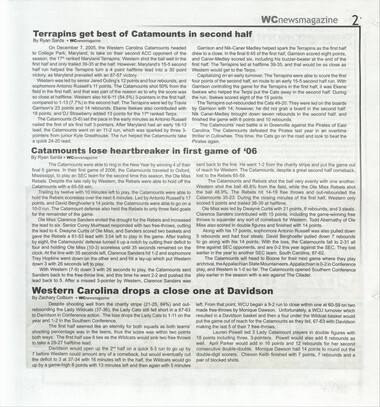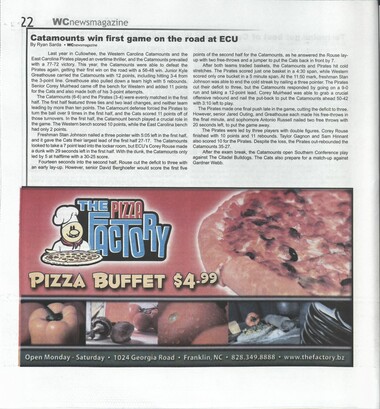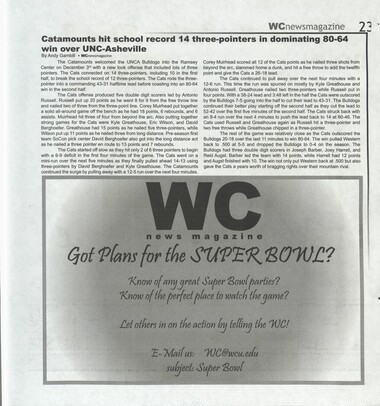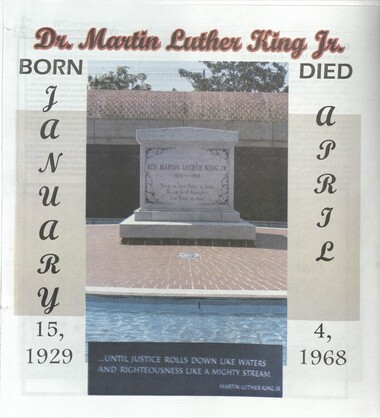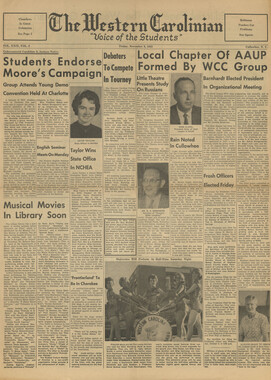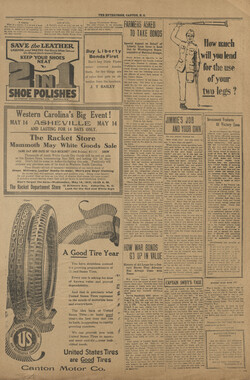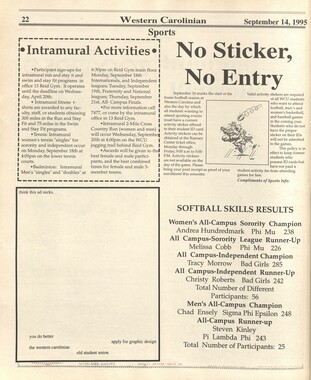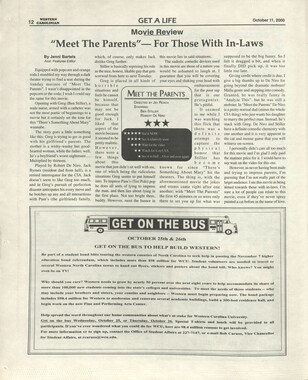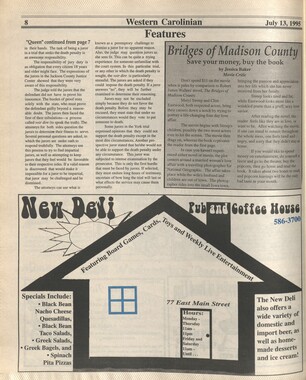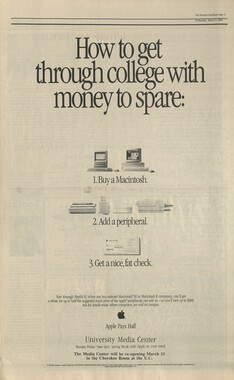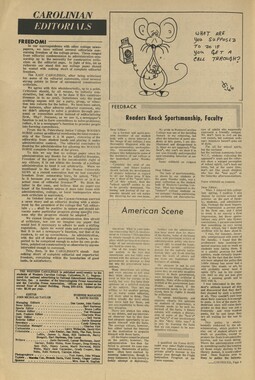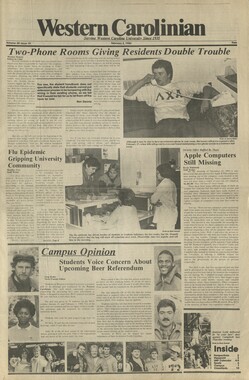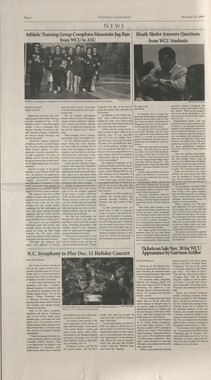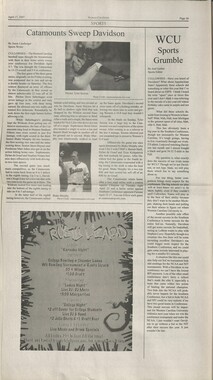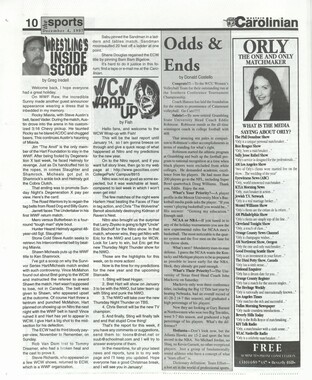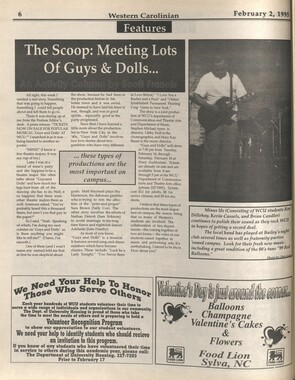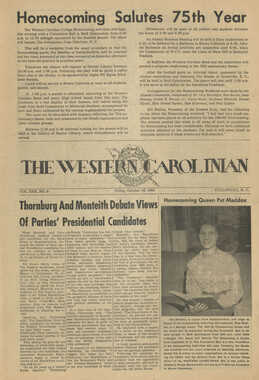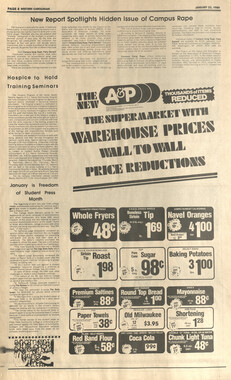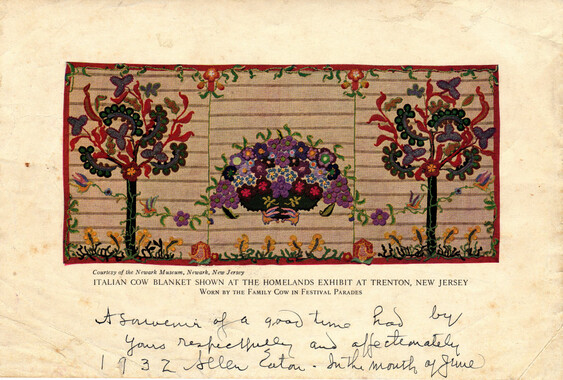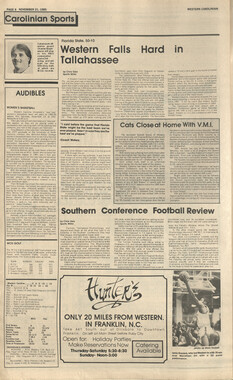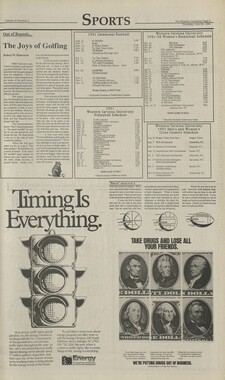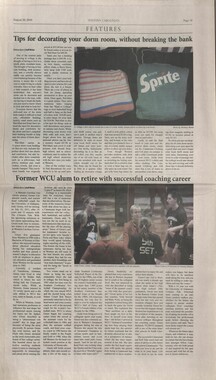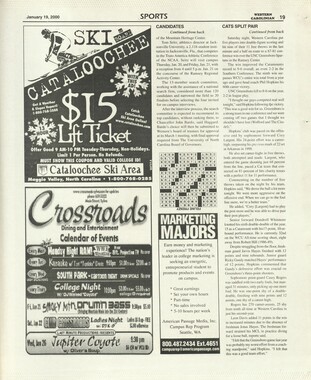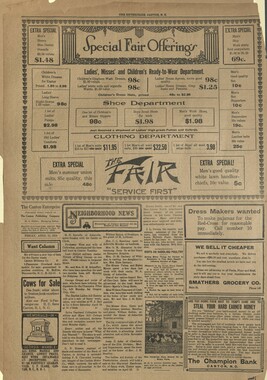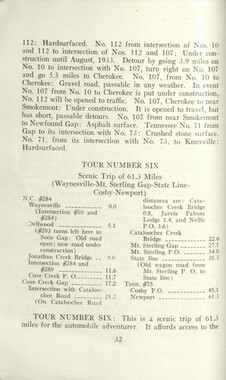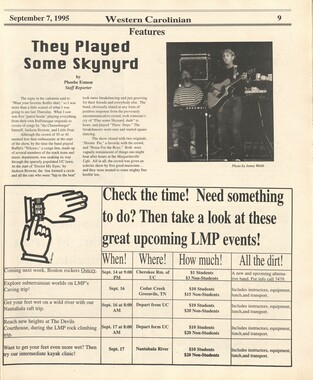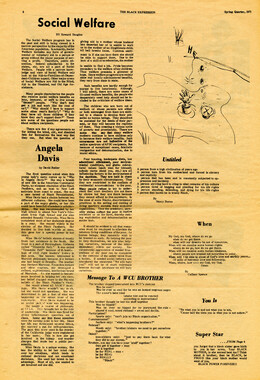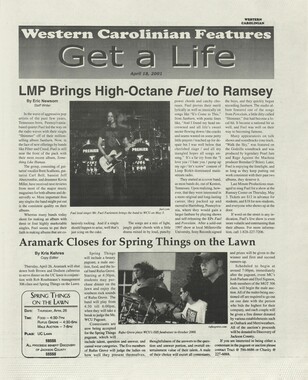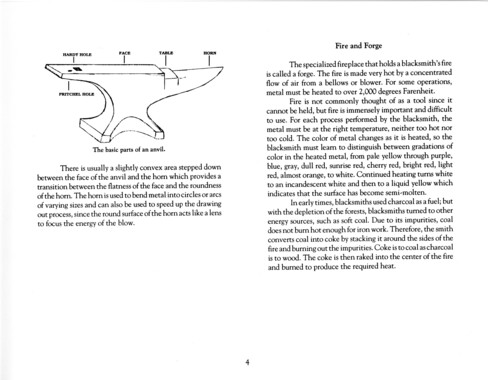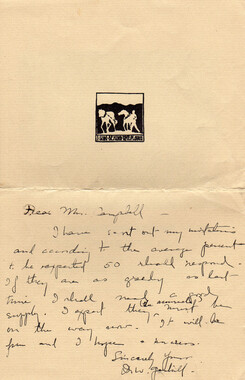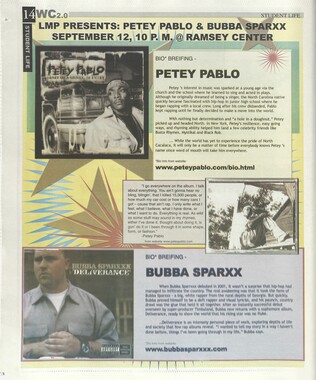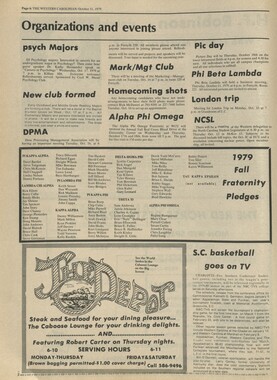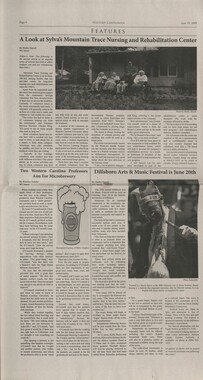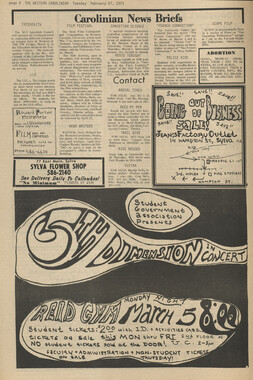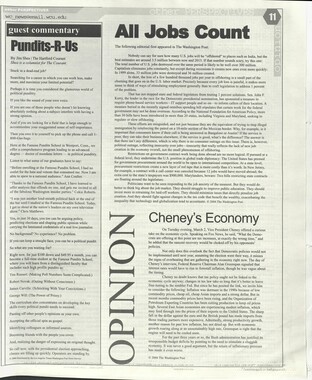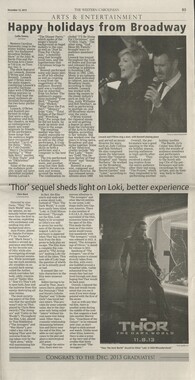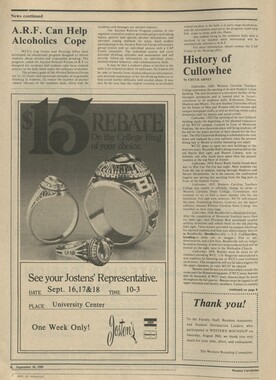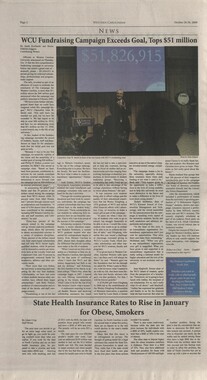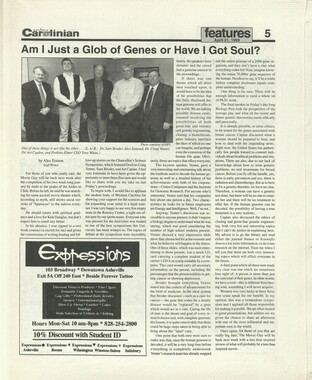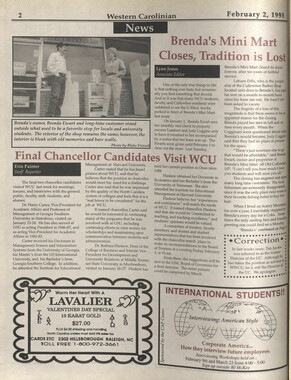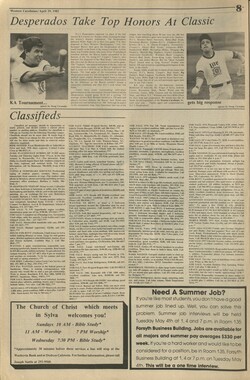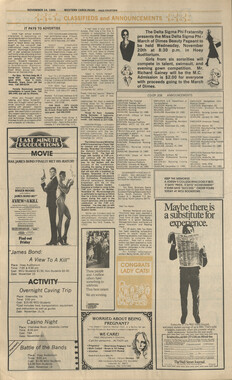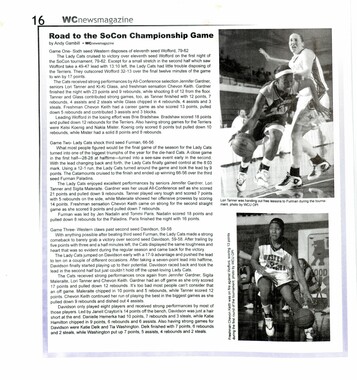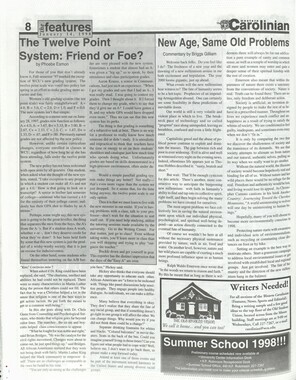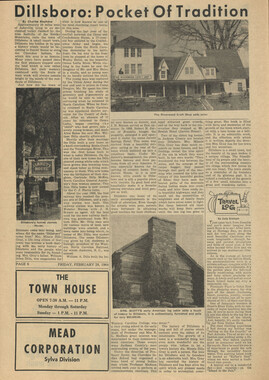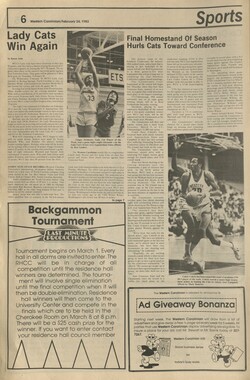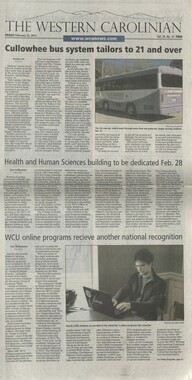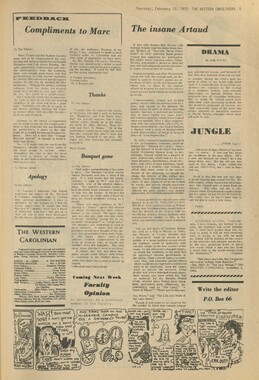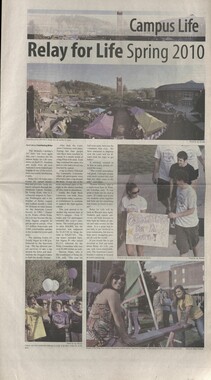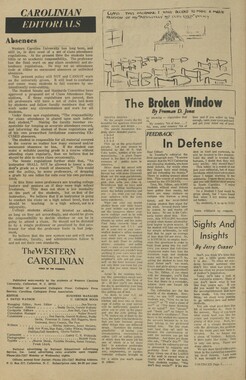Western Carolina University (21)
View all
- Canton Champion Fibre Company (2308)
- Cherokee Traditions (291)
- Civil War in Southern Appalachia (165)
- Craft Revival (1942)
- George Masa Collection (137)
- Great Smoky Mountains - A Park for America (3080)
- Highlights from Western Carolina University (422)
- Horace Kephart (998)
- Journeys Through Jackson (159)
- LGBTQIA+ Archive of Jackson County (89)
- Oral Histories of Western North Carolina (318)
- Picturing Appalachia (6617)
- Stories of Mountain Folk (413)
- Travel Western North Carolina (153)
- Western Carolina University Fine Art Museum Vitreograph Collection (129)
- Western Carolina University Herbarium (92)
- Western Carolina University: Making Memories (738)
- Western Carolina University Publications (2491)
- Western Carolina University Restricted Electronic Theses and Dissertations (146)
- Western North Carolina Regional Maps (71)
- World War II in Southern Appalachia (131)
University of North Carolina Asheville (6)
View all
- Western Carolina College (199)
- Western Carolina Teachers College (239)
- Western Carolina University (1976)
- Allanstand Cottage Industries (0)
- Appalachian National Park Association (0)
- Bennett, Kelly, 1890-1974 (0)
- Berry, Walter (0)
- Brasstown Carvers (0)
- Cain, Doreyl Ammons (0)
- Carver, George Washington, 1864?-1943 (0)
- Cathey, Joseph, 1803-1874 (0)
- Champion Fibre Company (0)
- Champion Paper and Fibre Company (0)
- Cherokee Indian Fair Association (0)
- Cherokee Language Program (0)
- Crittenden, Lorraine (0)
- Crowe, Amanda (0)
- Edmonston, Thomas Benton, 1842-1907 (0)
- Ensley, A. L. (Abraham Lincoln), 1865-1948 (0)
- Fromer, Irving Rhodes, 1913-1994 (0)
- George Butz (BFS 1907) (0)
- Goodrich, Frances Louisa (0)
- Grant, George Alexander, 1891-1964 (0)
- Heard, Marian Gladys (0)
- Kephart, Calvin, 1883-1969 (0)
- Kephart, Horace, 1862-1931 (0)
- Kephart, Laura, 1862-1954 (0)
- Laney, Gideon Thomas, 1889-1976 (0)
- Masa, George, 1881-1933 (0)
- McElhinney, William Julian, 1896-1953 (0)
- Niggli, Josephina, 1910-1983 (0)
- North Carolina Park Commission (0)
- Osborne, Kezia Stradley (0)
- Owens, Samuel Robert, 1918-1995 (0)
- Penland Weavers and Potters (0)
- Rhodes, Judy (0)
- Roberts, Vivienne (0)
- Roth, Albert, 1890-1974 (0)
- Schenck, Carl Alwin, 1868-1955 (0)
- Sherrill's Photography Studio (0)
- Smith, Edward Clark (0)
- Southern Highland Handicraft Guild (0)
- Southern Highlanders, Inc. (0)
- Stalcup, Jesse Bryson (0)
- Stearns, I. K. (0)
- Thompson, James Edward, 1880-1976 (0)
- United States. Indian Arts and Crafts Board (0)
- USFS (0)
- Vance, Zebulon Baird, 1830-1894 (0)
- Weaver, Zebulon, 1872-1948 (0)
- Western Carolina University. Mountain Heritage Center (0)
- Whitman, Walt, 1819-1892 (0)
- Wilburn, Hiram Coleman, 1880-1967 (0)
- Williams, Isadora (0)
- 1920s (57)
- 1930s (69)
- 1940s (114)
- 1950s (66)
- 1960s (314)
- 1970s (599)
- 1980s (406)
- 1990s (379)
- 2000s (282)
- 2010s (178)
- 1600s (0)
- 1700s (0)
- 1800s (0)
- 1810s (0)
- 1820s (0)
- 1830s (0)
- 1840s (0)
- 1850s (0)
- 1860s (0)
- 1870s (0)
- 1880s (0)
- 1890s (0)
- 1900s (0)
- 1910s (0)
- 2020s (0)
- Jackson County (N.C.) (2466)
- Appalachian Region, Southern (0)
- Asheville (N.C.) (0)
- Avery County (N.C.) (0)
- Blount County (Tenn.) (0)
- Buncombe County (N.C.) (0)
- Cherokee County (N.C.) (0)
- Clay County (N.C.) (0)
- Graham County (N.C.) (0)
- Great Smoky Mountains National Park (N.C. and Tenn.) (0)
- Haywood County (N.C.) (0)
- Henderson County (N.C.) (0)
- Knox County (Tenn.) (0)
- Knoxville (Tenn.) (0)
- Lake Santeetlah (N.C.) (0)
- Macon County (N.C.) (0)
- Madison County (N.C.) (0)
- McDowell County (N.C.) (0)
- Mitchell County (N.C.) (0)
- Polk County (N.C.) (0)
- Qualla Boundary (0)
- Rutherford County (N.C.) (0)
- Swain County (N.C.) (0)
- Transylvania County (N.C.) (0)
- Watauga County (N.C.) (0)
- Waynesville (N.C.) (0)
- Yancey County (N.C.) (0)
- Newsletters (510)
- Publications (documents) (1981)
- Aerial Photographs (0)
- Aerial Views (0)
- Albums (books) (0)
- Articles (0)
- Artifacts (object Genre) (0)
- Bibliographies (0)
- Biography (general Genre) (0)
- Cards (information Artifacts) (0)
- Clippings (information Artifacts) (0)
- Copybooks (instructional Materials) (0)
- Crafts (art Genres) (0)
- Depictions (visual Works) (0)
- Design Drawings (0)
- Digital Moving Image Formats (0)
- Drawings (visual Works) (0)
- Envelopes (0)
- Exhibitions (events) (0)
- Facsimiles (reproductions) (0)
- Fiction (general Genre) (0)
- Financial Records (0)
- Fliers (printed Matter) (0)
- Glass Plate Negatives (0)
- Guidebooks (0)
- Internegatives (0)
- Interviews (0)
- Land Surveys (0)
- Letters (correspondence) (0)
- Manuscripts (documents) (0)
- Maps (documents) (0)
- Memorandums (0)
- Minutes (administrative Records) (0)
- Negatives (photographs) (0)
- Newspapers (0)
- Notebooks (0)
- Occupation Currency (0)
- Paintings (visual Works) (0)
- Pen And Ink Drawings (0)
- Periodicals (0)
- Personal Narratives (0)
- Photographs (0)
- Plans (maps) (0)
- Poetry (0)
- Portraits (0)
- Postcards (0)
- Programs (documents) (0)
- Questionnaires (0)
- Relief Prints (0)
- Sayings (literary Genre) (0)
- Scrapbooks (0)
- Sheet Music (0)
- Slides (photographs) (0)
- Songs (musical Compositions) (0)
- Sound Recordings (0)
- Specimens (0)
- Speeches (documents) (0)
- Text Messages (0)
- Tintypes (photographs) (0)
- Transcripts (0)
- The Reporter, Western Carolina University (510)
- WCU Students Newspapers Collection (1923)
- A.L. Ensley Collection (0)
- Appalachian Industrial School Records (0)
- Appalachian National Park Association Records (0)
- Axley-Meroney Collection (0)
- Bayard Wootten Photograph Collection (0)
- Bethel Rural Community Organization Collection (0)
- Blumer Collection (0)
- C.W. Slagle Collection (0)
- Canton Area Historical Museum (0)
- Carlos C. Campbell Collection (0)
- Cataloochee History Project (0)
- Cherokee Studies Collection (0)
- Daisy Dame Photograph Album (0)
- Daniel Boone VI Collection (0)
- Doris Ulmann Photograph Collection (0)
- Elizabeth H. Lasley Collection (0)
- Elizabeth Woolworth Szold Fleharty Collection (0)
- Frank Fry Collection (0)
- George Masa Collection (0)
- Gideon Laney Collection (0)
- Hazel Scarborough Collection (0)
- Hiram C. Wilburn Papers (0)
- Historic Photographs Collection (0)
- Horace Kephart Collection (0)
- Humbard Collection (0)
- Hunter and Weaver Families Collection (0)
- I. D. Blumenthal Collection (0)
- Isadora Williams Collection (0)
- Jesse Bryson Stalcup Collection (0)
- Jim Thompson Collection (0)
- John B. Battle Collection (0)
- John C. Campbell Folk School Records (0)
- John Parris Collection (0)
- Judaculla Rock project (0)
- Kelly Bennett Collection (0)
- Love Family Papers (0)
- Major Wiley Parris Civil War Letters (0)
- Map Collection (0)
- McFee-Misemer Civil War Letters (0)
- Mountain Heritage Center Collection (0)
- Norburn - Robertson - Thomson Families Collection (0)
- Pauline Hood Collection (0)
- Pre-Guild Collection (0)
- Qualla Arts and Crafts Mutual Collection (0)
- R.A. Romanes Collection (0)
- Rosser H. Taylor Collection (0)
- Samuel Robert Owens Collection (0)
- Sara Madison Collection (0)
- Sherrill Studio Photo Collection (0)
- Smoky Mountains Hiking Club Collection (0)
- Stories of Mountain Folk - Radio Programs (0)
- Venoy and Elizabeth Reed Collection (0)
- WCU Gender and Sexuality Oral History Project (0)
- WCU Mountain Heritage Center Oral Histories (0)
- WCU Oral History Collection - Mountain People, Mountain Lives (0)
- Western North Carolina Tomorrow Black Oral History Project (0)
- William Williams Stringfield Collection (0)
- Zebulon Weaver Collection (0)
- College student newspapers and periodicals (1951)
- African Americans (0)
- Appalachian Trail (0)
- Artisans (0)
- Cherokee art (0)
- Cherokee artists -- North Carolina (0)
- Cherokee language (0)
- Cherokee pottery (0)
- Cherokee women (0)
- Church buildings (0)
- Civilian Conservation Corps (U.S.) (0)
- Dams (0)
- Dance (0)
- Education (0)
- Floods (0)
- Folk music (0)
- Forced removal, 1813-1903 (0)
- Forest conservation (0)
- Forests and forestry (0)
- Gender nonconformity (0)
- Great Smoky Mountains National Park (N.C. and Tenn.) (0)
- Hunting (0)
- Landscape photography (0)
- Logging (0)
- Maps (0)
- Mines and mineral resources (0)
- North Carolina -- Maps (0)
- Paper industry (0)
- Postcards (0)
- Pottery (0)
- Railroad trains (0)
- Rural electrification -- North Carolina, Western (0)
- School integration -- Southern States (0)
- Segregation -- North Carolina, Western (0)
- Slavery (0)
- Sports (0)
- Storytelling (0)
- Waterfalls -- Great Smoky Mountains (N.C. and Tenn.) (0)
- Weaving -- Appalachian Region, Southern (0)
- Wood-carving -- Appalachian Region, Southern (0)
- World War, 1939-1945 (0)
- Text (2491)
- MovingImage (0)
- Sound (0)
- StillImage (0)
Western Carolinian Volume 70 Number 08
Item
Item’s are ‘child’ level descriptions to ‘parent’ objects, (e.g. one page of a whole book).
-
-
+ 14 | WCnewsmagazine Brief Timeline of the Life and Accomplishments of Dr. Martin Luther King, Jr. Jan 15, 1929: Bom in Atlanta, GA 1948 Graduates from Morehouse College at age 19 Begins study at Crozer Theological Seminary Ordained in Baptist Ministry 1953 Marries Cretta Scott and they move to Montgomery, AL. 1955 Joins bus boycott began by Rosa Parks Elected president of the Montgomery Improvement Association 1957 Forms the Southern Christian Leadership Conference in search of civil rights. in May, King speaks to 15,000 in Washington, DC 1958 US Congress passes the first Civil Rights Act in the post-Reconstruction era. Assassination attempt made on King when he was stabbed in Harlem, 1959 Studied Ghandi's philosophy of nonviolence in India Resigned as pastor of Dexter Avenue Baptist Church to focus on civil rights Moyed to Atianta for the SCLC 1960 Becomes co-pastor with his father at Ebenezer Baptist Church Arrested in Atlanta during a sit in, and sentenced to four months in jail 1961 King and Freedom Riders succeed in banning segregation in interstate travel through the Interstate Commerce Commission. Congress on Racial Equality (CORE) began Freedom Ride on a Greyhound bus through the south. 1962 King is arrested in July, and jailed. 1963 Arrested on April 12 for protesting without a permit. Wrote Letter from a Birmingham Jail 125,000 people participate in a Freedom Walk in Detroit led by King. August 28, king delivers the | Have a Dream speech in the March on Washington which was the largest civil rights demonstration with 250,000 people 1964 Civil Rights Act of 1964 signed, with King present King is youngest to receive Nobel Peace Prize at 35 1965 In February, King arrested for demonstration in Selma, Alabama Johnson signs the Voting Rights Act King changes his focus to socioeconomic problems 1966 King and supporters begin the March Against Fear in the South 1967 Supreme Court upholds conviction of King demonstrating without a permit in Birmingham. He is jailed four days in Birmingham. Begins Poor Peoples Campaign which focused on poor people of all races, 1968 March 28, a march led by King turns violent for the first time. April 4, 1968, Martin Luther King, Jr. was fatally shot on the balcony of the Lorraine Motel in Memphis, TN. Commentary: Reflections on the King legacy By Jennifer Scism WCU Alumni | grew up in a household that was defined by many characteristics. Socially my household would have been defined as white, southern middle- class. As a developing child | was taught history from that perspective, The American educational system tends to be dominated by the same white middle-class make-up and therefore | was bombarded with the same historical perspective in the public school system. Naive due to a lack of age and blinded by the utter faith all children tend to place in the hands of their parents, | understood and accepted this history as my family and my teachers relayed it to me. Dr. Martin Luther King Jr., represents an era that was a centerfold of change and transition. Obviously, he represented the African American population and the struggles of his own people. Growing up, | was taught to believe that he merely represented black people and that his life was insignificant to my well-being and my own history. After all, what did he do for everyone else? | have some issues, as an aspiring historian, with the King Narrative and its overwhelming take over of the history books. The constant and unwavering efforts put forth by grassroots participants of the Movement are not always given a spotlight because of the attention grabbing exuberance of the King Narrative. But what pertaining to textbooks can | not complain about? Perhaps that is what makes grassroots labor so brilliant to begin with. It often goes unrecognized, yet it makes such valuable contributions to movements of all natures. However, over many years of learning and many days of personal struggle, | have developed an appreciation for Dr. King and his legacy. The King holiday is more than just a black holiday." To me, Dr. King embodied what it means to be American. He utilized what the constitution guaranteed him and made it possible for others to obtain what they had been guaranteed for decades, but had not officially received. His legacy has, for years, empowered people of color, but beyond his own race, the legacy has often failed to infiltrate. This lack of absorbance cannot always be attributed to racism from the white population. There are many white citizens who wish to be a part of the legacy and the continuation of the Movement. However, they have been ostracized, due to their skin color, by portions of the African American population. The truth is, the African American population is just as skeptical about interracial overtones as the white majority. To this day, the dream that King spoke about is still a struggle, even for some of the people who supposedly dedicated their lives to fulfilling it. Racism from white America is stil a serious issue, but racism is not a one-way street. My hope for the 2006 holiday is that people from all sides of the spectrum be included in the remembrance of not only Dr. King, but the American Civil Rights Movement as a whole. Take the time to do a litle research and educate yourself about the people who are not in the textbooks. | also hope that people will discontinue their half-hearted efforts to fulfil his dream. Ifit disturbs you, as an African American, that people outside of your race desire to celebrate the holiday with you, then you need to take a step back and re-educate yourself about Dr. King and his vision. Be proud of who you are, but remember God don't like ugly! Last, but definitely not least: if you as a Caucasian American choose to be disgruntled with the fact that Dr. King's life is even celebrated with @ holiday, realize that your rights as an American were further amplified by his life. Realize that Dr. King stood up for and defended the poor and underprivileged of all colors and creeds. Take pride in the fact, that if one day, you choose to awake from your racist slumber, you can actually interact wit people of other ethnicities. Thanks to the participants of the American Civil Rights Movement, you also have rights as an American that you did not have decades ago, even if you choose not to utilize those rights.
Object
Object’s are ‘parent’ level descriptions to ‘children’ items, (e.g. a book with pages).
-
The Western Carolinian is Western Carolina University's student-run newspaper. The paper was published as the Cullowhee Yodel from 1924 to 1931 before changing its name to The Western Carolinian in 1933.
-


